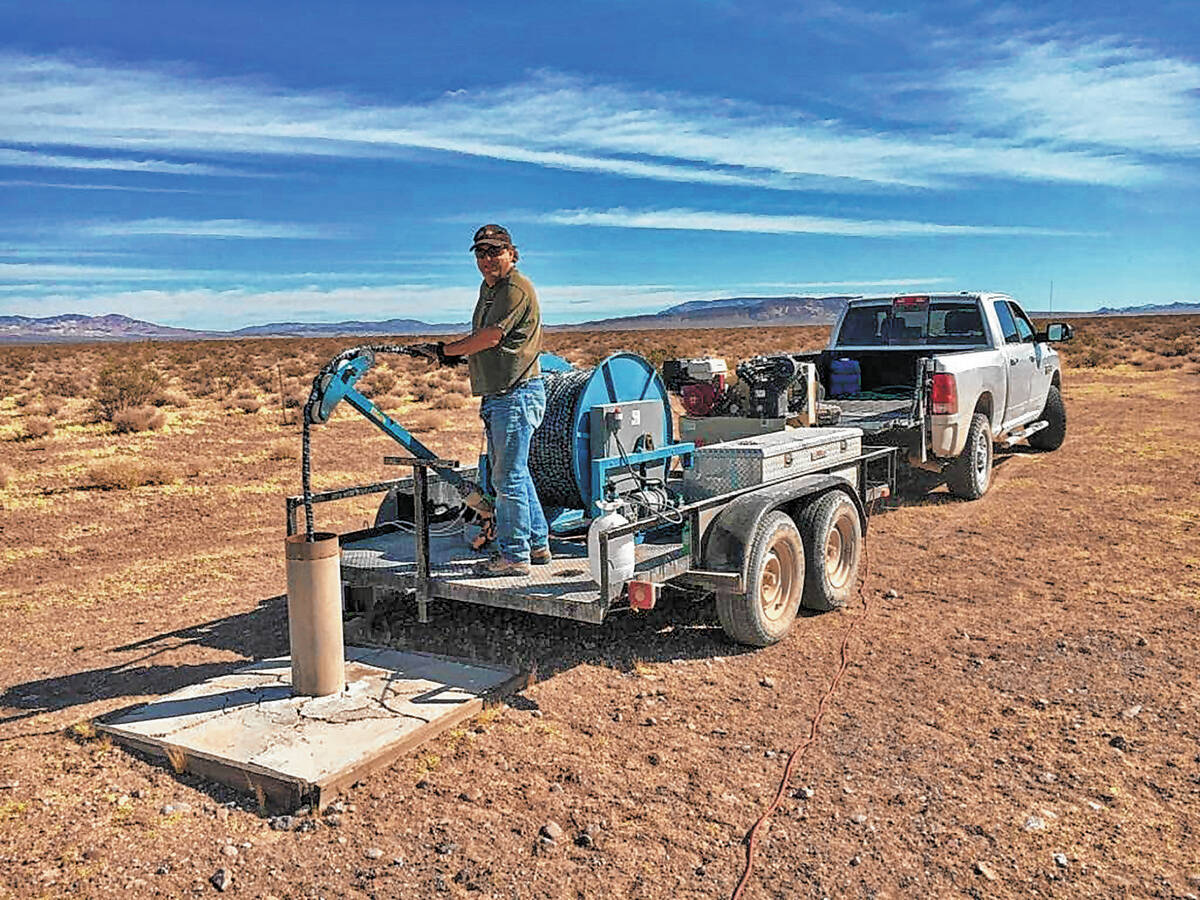Arsenic levels unhealthy in some Nevada rural well water
A new study from Desert Research Institute found unhealthy levels of arsenic and heavy metals in drinking water from privately owned wells across rural Nevada.
Researchers sent testing kits to 174 homes with private wells to test for arsenic and heavy metals, which can cause health problems when unsafe levels are present in the drinking water. Of those wells, 22 percent had arsenic levels that were above what the Environmental Protection Administration deems safe. In some cases, those levels were 80 times higher than the federal agency’s maximum contaminant limit.
The tests also showed high levels of heavy metals, including uranium, iron, lithium, manganese and molybdenum, according to the study, which was published in “Science of the Total Environment.”
Daniel Weeks, general manager of the Nye County Water District, told the Pahrump Valley Times/Tonopah Times-Bonanza and Goldfield News on Wednesday that most of the tests in the DRI study were derived from samples north of here.
“We don’t have a proliferation of excessive arsenic in our water,” said Weeks, who added that all groundwater contains trace levels of arsenic.
Nye County Water District and its science department are working to provide more data on local groundwater quality, Weeks said, noting that results will be released when they’re available.
Monica Arienzo, a Desert Research Institute associate research professor who led the study, said the results underscore the need for regular groundwater testing for the roughly 182,000 Nevadans who rely on private wells for their drinking water. But that testing isn’t as common as one might expect. Roughly half of the private well owners who participated in the study said they had not previously tested their wells, a result that surprised Arienzo and the other researchers.
Private wells unregulated
Water that comes from a municipal water supplier, such as Southern Nevada Water Authority in Las Vegas or the Truckee Meadows Water Authority in Reno, is regularly tested and required to meet certain federal guidelines. But for those who get their water from private wells, there are no such regulations or any government body regularly testing the waters. Arienzo said they know that there are elevated concentrations of heavy metals and arsenic in groundwater across the state because of Nevada’s geology and generally arid climate.
“If you’re on a municipal water system, your water is safe to drink. If you’re a private well user, the best thing you can do is test and treat your water,” Arienzo said.
Ingesting arsenic over a long period of time can cause several health issues, including stomach problems, anemia, neuropathy, skin lesions and increased risk of cancer, according to the Centers for Disease Control and Prevention.
A reverse osmosis system can be effective at reducing arsenic levels. About 40 percent of the homes that were tested had water treatment systems and submitted samples showing levels pre- and post-treatment. Those systems were shown to reduce concentrations of heavy metals, but the results still showed levels above what the EPA considers to be safe to ingest, according to the study.
Frequent testing recommended
Participants for the study were recruited from homeowners through the Healthy Nevada Project, a collaboration between Desert Research Institute and the Reno-based Renown Health Network. The majority of those households were in Northern Nevada, around Reno, Carson City and Fallon.
It’s an issue that hits close to home for Arienzo — literally. Her home outside of Reno is on a private well, and tests showed high levels of iron and manganese in the water.
Arienzo said the general recommendation is to test the water every 10 years. But for those where there are known elevated levels of arsenic, she said it’s better to test every couple of years to ensure water treatment systems are working.
While the Nevada Division of Environmental Testing has no authority to regulate the water quality of private wells, the agency does provide a list of laboratories certified to do that testing for Nevadans. Arienzo said she hopes there will be more funding available for programs similar to the testing done in the study and to make people aware of why they need to test their water.
In Nye County, residents can visit nyecountywaterdistrict.net for more information or contact the county’s water manager at 775-727-3487.
“There’s a real need to keep getting the word out about who should be testing and treating their water,” she said.
Contact Colton Lochhead at clochhead@reviewjournal.com. Follow @ColtonLochhead on Twitter.
This story has been updated to include comments from the Nye County Water District.
















